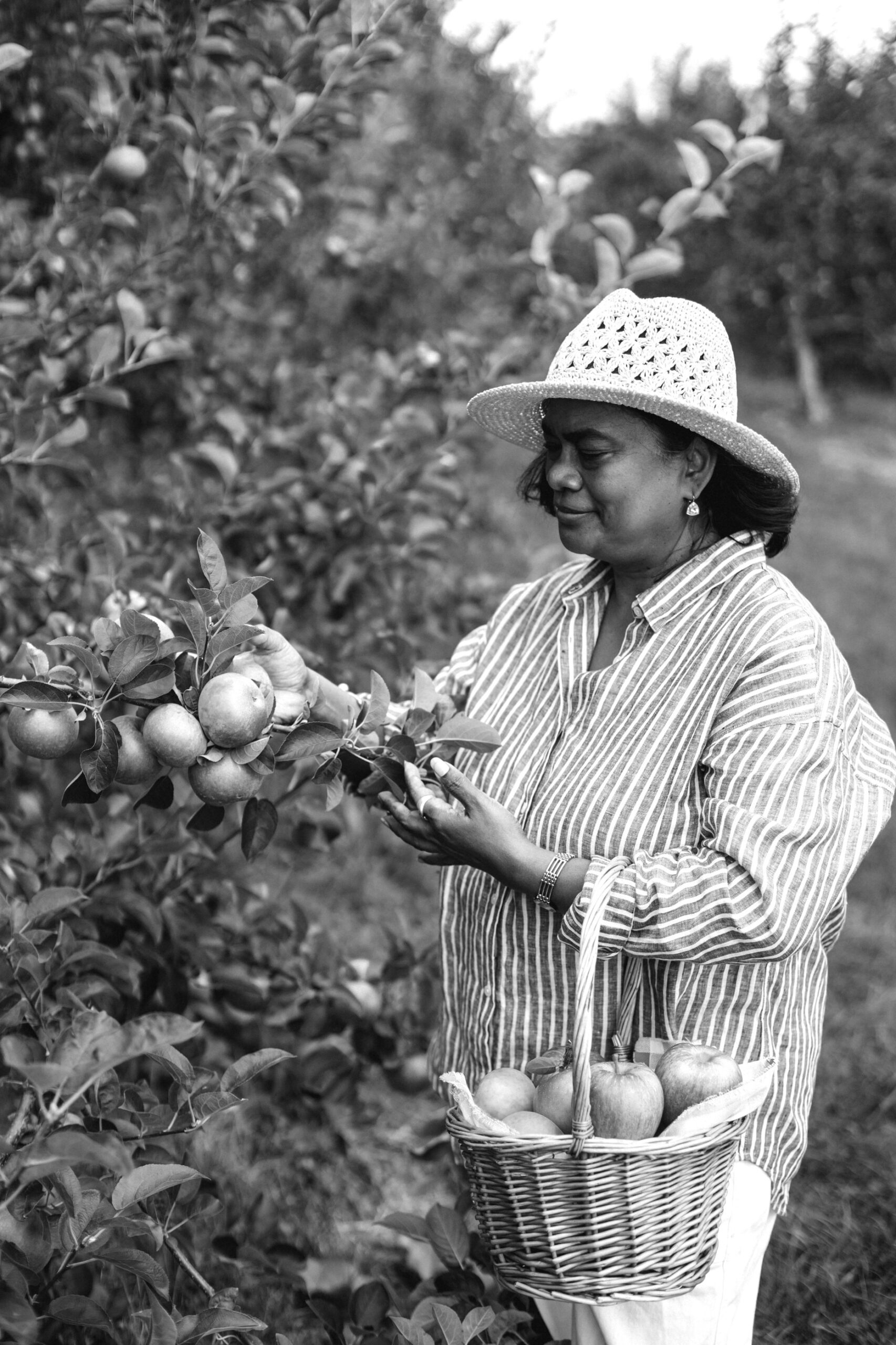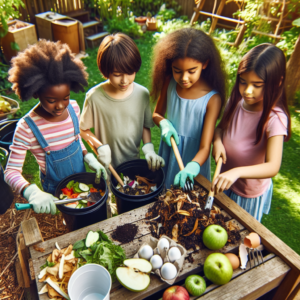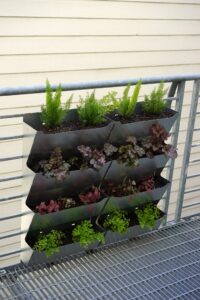Contents
- 1 What is Self-Efficacy And How Can Gardening Help Increase It?
- 2 Seeds of Confidence: Growing Your Self-Efficacy
- 3 Understanding Self-Efficacy
- 4 Therapeutic Gardening: A Root to Self-Improvement
- 5 Harvesting Happiness: The Outcomes of Gardening
- 6 Spreading the Roots: Expanding Beyond the Personal Garden
- 7 Frequently Asked Questions (FAQ)
- 8 Author
What is Self-Efficacy And How Can Gardening Help Increase It?

Self-efficacy is the belief in your own ability to succeed in specific situations or accomplish a task. It plays a major role in how you approach goals, tasks, and challenges. Gardening can help increase self-efficacy by providing clear tasks and goals that, when achieved, build your confidence and prove your abilities. As you learn to care for plants and see the results of your efforts, your belief in your ability to influence events and outcomes grows.
Seeds of Confidence: Growing Your Self-Efficacy
Gardening is more than just a hobby; it’s a journey of self-discovery and empowerment. As you tend to your garden, you’re not just nurturing plants; you’re cultivating your own sense of self-efficacy. This is the belief in your ability to handle tasks and solve problems, and it’s a powerful tool in every gardener’s kit. Let’s explore how therapeutic gardening can sow the seeds of confidence and help you grow a more resilient, capable you.
Key Takeaways
-
Discover how therapeutic gardening can enhance your self-efficacy, the belief in your own abilities.
-
Understand the psychological principles that connect gardening with personal growth.
-
Learn to measure and track your current level of self-efficacy.
-
Gain insight into starting your own therapeutic garden, regardless of space constraints.
-
Unearth the benefits of gardening for mental clarity, stress relief, and improved self-esteem.
Understanding Self-Efficacy

Self-efficacy is the engine that powers our actions. It’s our internal belief system that dictates how we approach challenges, tasks, and goals. When we have high self-efficacy, we see difficulties as things to be overcome, not as barriers. This mindset is crucial for gardeners, as it turns every weed into a challenge rather than a defeat. But self-efficacy isn’t just about confidence; it’s about knowing that you have the skills to make things grow, both in the garden and in life.
The Psychology Behind Self-Belief
Psychologists have long recognized the role of self-efficacy in achieving success. It’s the difference between giving up when the going gets tough and pushing through to harvest the fruits of your labor. Self-efficacy is built on past successes, vicarious experiences, verbal persuasion, and physiological states. These are the nutrients for your self-belief, and gardening offers all of them in spades. As you see your plants thrive, you’ll start to see yourself in a new light, too.
Measuring Your Current Self-Efficacy Level
Before you can grow, you need to know where you stand. Measuring your self-efficacy can be as simple as reflecting on your gardening experiences. How do you feel when faced with a new plant or a pest problem? Do you dive in with confidence or hesitate? Understanding your starting point is essential for tracking your growth, both in the garden and within yourself.
Consider these questions:
-
Do you feel capable of learning new gardening skills?
-
Can you bounce back from gardening setbacks?
-
Are you comfortable asking for gardening advice?
-
Do you believe you can create a thriving garden?
-
How do you approach problem-solving in your garden?
Reflect on these questions and rate your confidence in each area. This will be your self-efficacy baseline, your personal plot of land from which to grow.
Therapeutic Gardening: A Root to Self-Improvement

Therapeutic gardening is a powerful tool for personal development. It’s an active, hands-on approach to enhancing your well-being. As you plant, prune, and harvest, you’re also cultivating your mental and emotional health. Gardening tasks provide a sense of accomplishment and tangible results, which are critical for building self-efficacy.
But it’s not just about the end result. The process of gardening—the daily care, the attention to detail, the patience required—mirrors the process of self-improvement. Each day in the garden is an opportunity to practice resilience, to learn new skills, and to nurture your growth mindset. And as your garden flourishes, so, too, will your belief in your abilities.
So, grab your gloves and get ready to dig into the soil of self-improvement. Your garden awaits, and with it, a stronger, more confident you.
The Connection Between Gardening and Empowerment
There’s a hidden strength in the act of gardening that goes beyond physical work. It’s about taking control of a little piece of the earth and making it bloom. This act of creation is empowering. It reminds us that we have the power to effect change, not just in the soil, but in our lives. When you decide where to plant a seed or how to shape your garden, you’re making choices that reflect your desires and your vision for the future. It’s these small acts of decision-making and problem-solving that build up our sense of empowerment.
-
Choosing what to plant is a form of self-expression and control.
-
Overcoming gardening challenges builds problem-solving skills.
-
Seeing tangible results from your efforts reinforces your sense of agency.
-
Gardening requires planning and foresight, enhancing decision-making abilities.
-
The garden becomes a personal sanctuary where you call the shots.
How Soil and Seedlings Can Strengthen the Mind
There’s a magic in the way a seed transforms into a seedling, and then into a full-grown plant. This process mirrors the growth we can experience in our minds. The soil is like the foundation of our thoughts, fertile and ready for planting. Each seedling represents a new skill or idea, and as it grows, so do our capabilities and understanding. The patience and attention required to nurture a garden are the same qualities that help us cultivate a healthy mind. It’s a natural cycle of growth that reinforces itself: as our garden grows, so does our mental fortitude.
Consider the benefits:
-
Working with soil has been shown to reduce stress and improve mood.
-
Regular gardening can improve concentration and memory.
-
Engaging with nature can increase feelings of relaxation and well-being.
-
The repetitive tasks of gardening can be meditative and mentally restorative.
-
Learning about plants and their care can boost cognitive function.
Harvesting Happiness: The Outcomes of Gardening

“Elderly Farmer Eating Harvest from Farm …” from www.pexels.com
The fruits of your labor in the garden are not just the vegetables, fruits, and flowers you grow; they are also the moments of joy and the sense of accomplishment that come with them. Gardening is a labor of love that pays off in ways that nourish the body and soul. It’s about the little victories: the first sprout of green, the bloom of a flower, or the taste of a homegrown tomato. These are the rewards that fuel our happiness and satisfaction.
Tracking Progress: From Bud to Blossom
Keeping track of your garden’s progress is a rewarding activity that can show you just how far you’ve come. It’s not just about marking the growth of your plants, but also noting the growth in your skills and confidence. Create a garden journal or take regular photos to document your journey. As you flip through the pages or scroll through the images, you’ll see the story of your garden—and your own development—unfold.
-
Write down when you plant seeds and when they germinate.
-
Note any new gardening techniques you try and their outcomes.
-
Record your feelings and reflections on your gardening experiences.
-
Celebrate successes and learn from any challenges.
-
Share your progress with friends or family to spread the joy.
Thriving with Plants: Stories of Resilience and Growth
Every gardener has a story of triumph, whether it’s overcoming a stubborn pest, reviving a wilting plant, or finally growing a successful crop after seasons of trial and error. These stories are testaments to the resilience that gardening can build. They inspire us and remind us that growth often comes from facing and overcoming adversity. Let these stories be a source of encouragement and a reminder that with patience and persistence, you can thrive alongside your plants.
Take Sarah, for example, who struggled with a rocky, unforgiving soil in her backyard. With research, effort, and a lot of compost, she transformed her barren plot into a lush vegetable garden. Her success in the garden mirrored her personal journey of turning challenges into opportunities for growth.
Spreading the Roots: Expanding Beyond the Personal Garden

“File:Community garden.jpeg – Wikipedia” from en.wikipedia.org
Gardening doesn’t have to be a solitary activity. Sharing your passion with others can magnify the benefits of gardening and create a sense of community. By expanding beyond your personal garden, you can connect with fellow gardeners, contribute to your local community, and even help those in need. This communal aspect of gardening can reinforce your self-efficacy as you see the impact of your efforts on a larger scale.
Community Gardening and Shared Self-Efficacy
Community gardens are a fantastic way to cultivate plants and friendships. These shared spaces offer a chance to learn from others, exchange tips and seeds, and celebrate harvests together. Working alongside others towards a common goal can significantly boost your confidence and show you the power of collective effort. As the garden grows, so does the community’s sense of achievement and pride.
-
Join a local community garden to meet and collaborate with other gardeners.
-
Participate in garden planning and decision-making to enhance your leadership skills.
-
Learn new gardening methods from your peers and share your own knowledge.
-
Enjoy the social benefits of gardening with others, from potlucks to plant swaps.
Volunteering Your Green Thumb for Greater Good
Volunteering your time and gardening skills can have a profound impact on your community and beyond. Consider lending a hand at a school garden, teaching children the joys of growing their own food. Or help maintain a garden at a local nursing home, bringing the therapeutic benefits of gardening to the elderly. By volunteering, you not only help others but also strengthen your own sense of purpose and self-efficacy.
-
Teach gardening classes at a local community center or school.
-
Donate excess produce from your garden to food banks or shelters.
-
Help maintain public garden spaces to beautify your neighborhood.
-
Start a gardening club to share your passion and foster community growth.
Through these collective gardening efforts, you’ll find that your skills and confidence will bloom just as vibrantly as the gardens you help to cultivate. So, spread the roots of your gardening journey, and watch as the seeds of self-efficacy you plant in yourself and others grow into a bountiful harvest of community spirit and shared success.
Frequently Asked Questions (FAQ)

Which type of gardening is most therapeutic?
The most therapeutic type of gardening is the one that resonates with you personally. For some, it might be growing a vegetable garden that provides the satisfaction of producing food. For others, a flower garden that beautifies their space and provides a sensory experience might be more therapeutic. Container gardening can be a great option for those with limited space, while community gardening can offer social benefits. The key is to choose a type of gardening that you enjoy and that suits your lifestyle.
How do I start a therapeutic garden if I don’t have much space?
Even if you’re short on space, you can still enjoy the benefits of therapeutic gardening. Start with container gardening, which allows you to grow plants in pots on windowsills, balconies, or patios. Vertical gardens are another space-saving option, where you can grow plants on wall-mounted planters. Herbs are great for small spaces and can be grown indoors, providing fresh flavors for your cooking and a sense of accomplishment.
Can therapeutic gardening have a positive impact on children?
Absolutely! Gardening can be a wonderful activity for children, teaching them responsibility, patience, and the science of life cycles. It can also improve their self-efficacy as they see the direct results of their care in the plants they grow. Gardening can be a fun way for children to get outside and engage with nature, fostering a sense of wonder and curiosity that can last a lifetime.
In conclusion, therapeutic gardening is a deeply rewarding practice that offers a multitude of benefits for the mind, body, and spirit. It’s a way to connect with nature, build self-efficacy, and cultivate a sense of well-being. Whether you’re tending to a few potted plants on a windowsill or a sprawling backyard oasis, the act of gardening can be a powerful tool for personal growth and resilience. By engaging with the earth, we learn about the cycles of life and our place within them. We discover that, just like our plants, we have the ability to overcome obstacles, adapt to our environment, and thrive. So, put on your gloves, pick up a trowel, and start planting the seeds of a happier, healthier you. Happy gardening!



